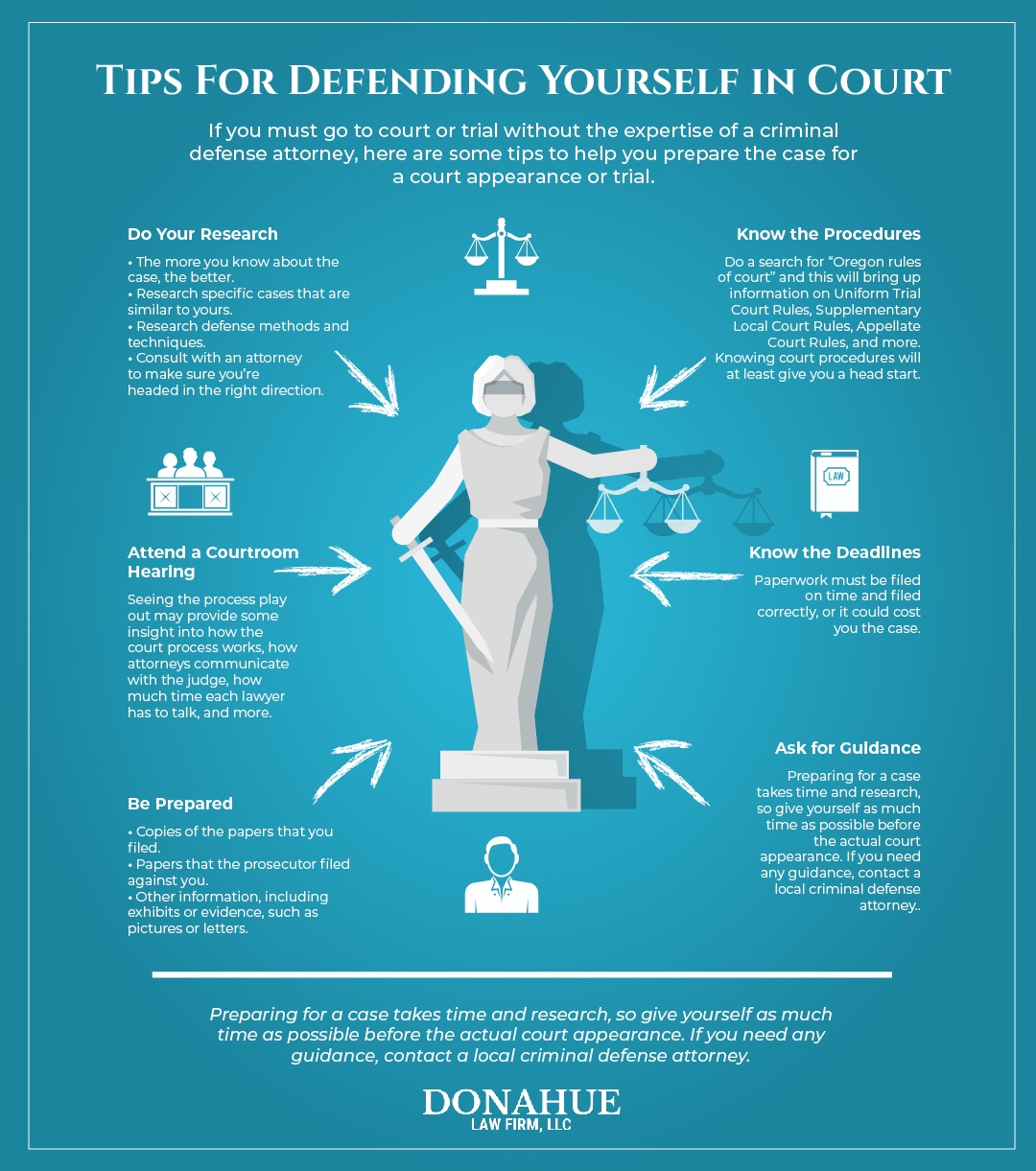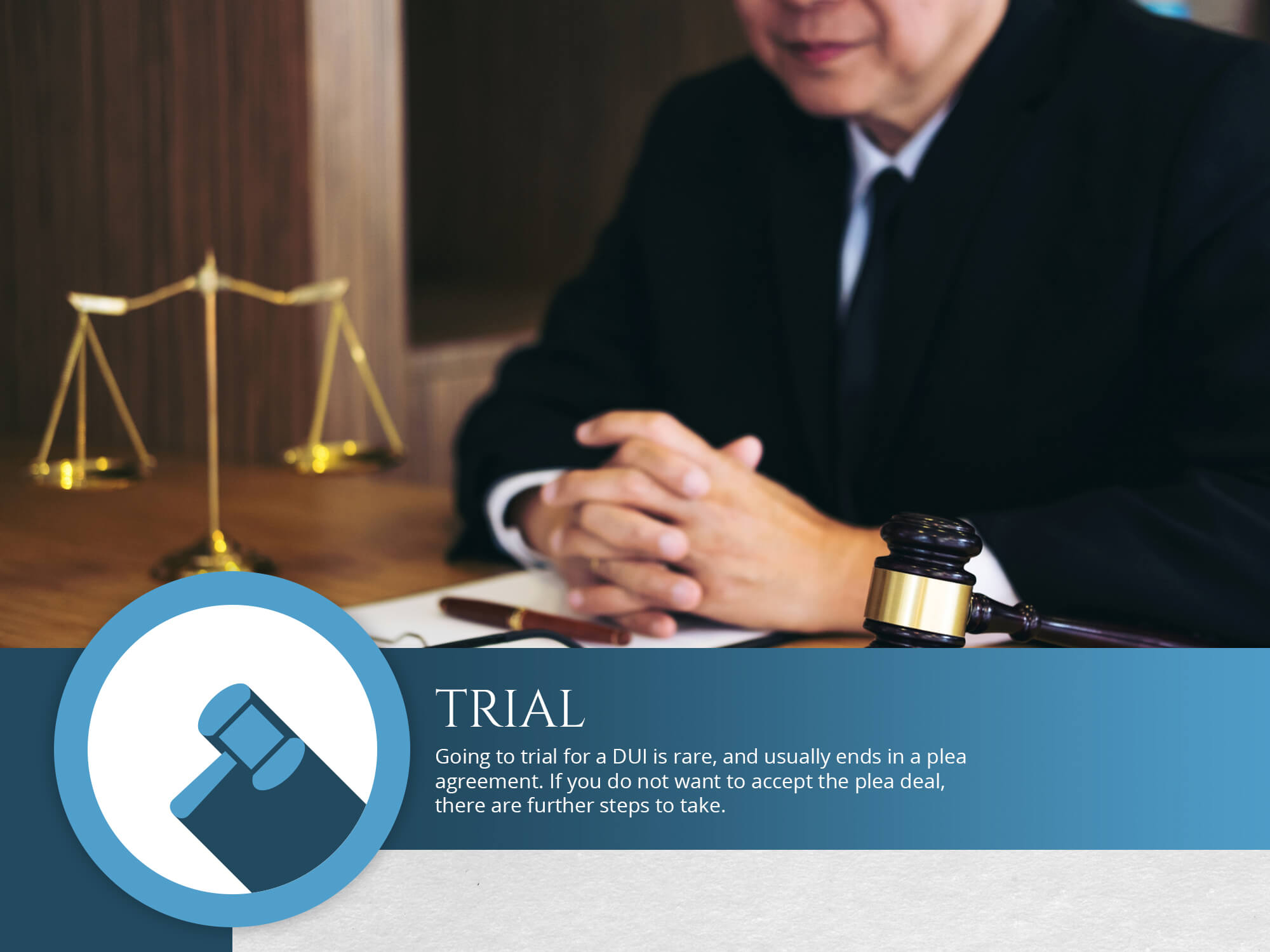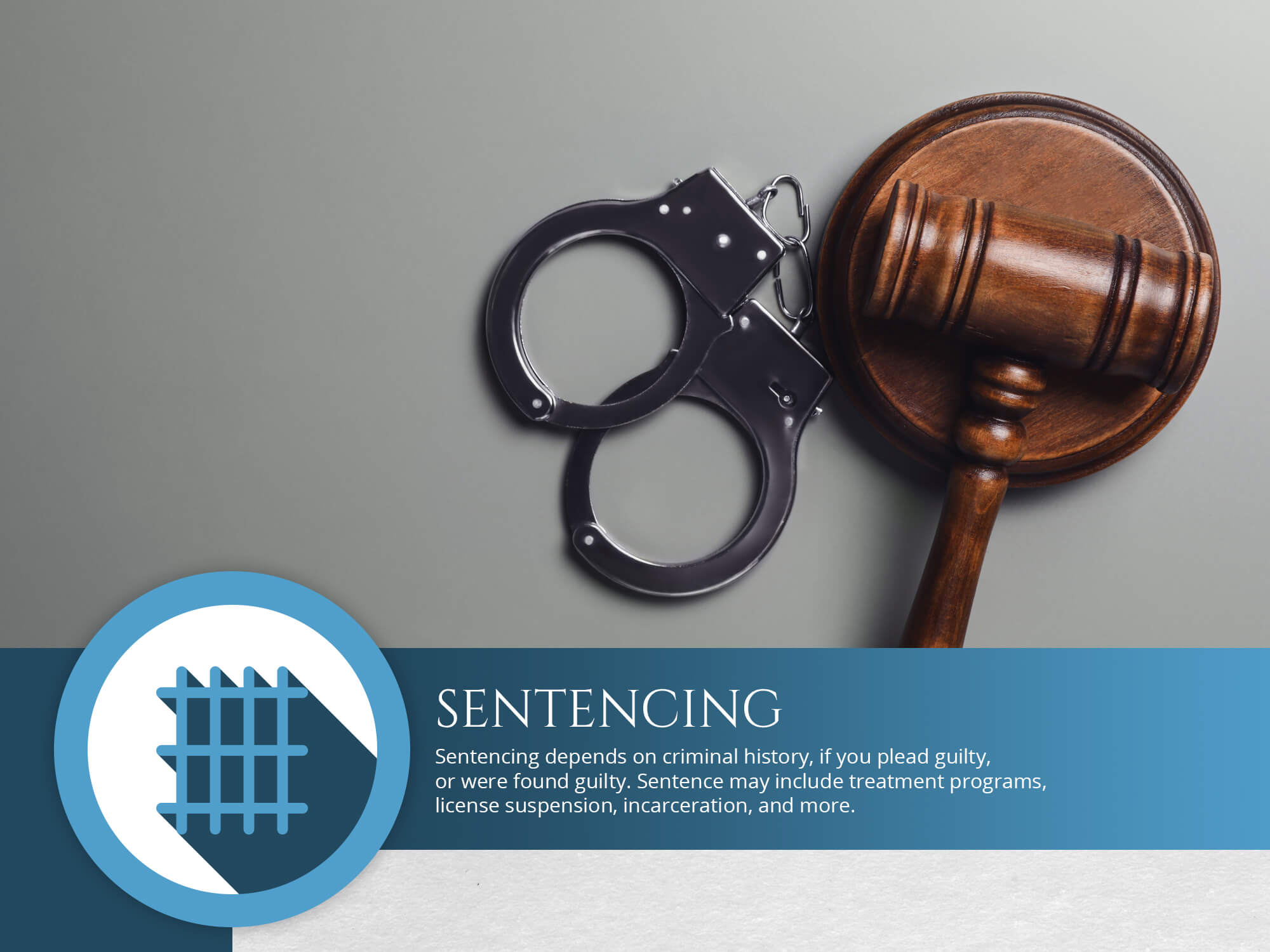
How to Defend Yourself in Court
A few months ago, we posted a blog about why you should not defend yourself in court. There are various reasons why, when facing criminal charges, that defending yourself can actually harm your chances of a successful outcome, such as not understanding the legal jargon of the courtroom, the processes of the courtroom, and most importantly, the years of experience, training, and education that the prosecuting attorney has that you don’t. Lawyers and criminal defense attorneys attend years of schooling and training that allow them to be fully prepared for fighting cases in court, not to mention the experience they gain in actually preparing for a specific case.
Yes, this is meant to influence your decision on whether or not to defend yourself in court. The Donahue Law Firm does very much want to see you succeed — and we understand the incredible risk of trying to go it alone against an experienced prosecutor, a judge who won’t do you any favors, and other court personnel who also won’t offer any help or suggestions. However, because we want so much for your case to have a positive outcome, we want to help you as much as possible to prepare for your court process.
If you absolutely must go to court or trial without the expertise of a criminal defense attorney, here are some tips to help you prepare the case and for the court appearance or trial itself.

Tips For Defending Yourself in Court
Do Your Research
Whether you’re facing a DUI charge or a domestic violence offense, the more you know about the law and your specific charge the better. If you’re facing a DUI charge, learn if the police pulled you over with sufficient reasoning or if the sobriety test was administered correctly. Did you fully understand the process of the sobriety test? Did the officer read you your Miranda Rights? Had the breathalyzer been properly maintained? There are many arguments that can be made to win your case, but it takes knowing what to look for.
There is a lot of information online about laws and criminal charges, so be careful about what you are reading and make sure it applies to your case and to the state of Oregon. Consider consulting with a criminal defense attorney to make sure you are headed in the right direction or do some research at a local public law library.
Know the Court Procedures
Doing a quick search for “Oregon Rules of Court” will bring up information on Uniform Trial Court Rules, Supplementary Local Court Rules, Appellate Court Rules, and more. The Uniform Trial Court Rules provides information on:
- Decorum in Proceedings, including proper apparel, manner of address, proper position of parties before the court, procedure for swearing witnesses, communication with jurors, and more.
- Proceedings in Criminal Cases, including the procedure for the order of transportation, oral argument on motions in criminal cases, motion to suppress evidence, and more.
These documents contain information that can be hard to understand for the average person, so be aware that it will take some time to gather useful information. It is indeed useful information, as not knowing what the appropriate procedures are during court is not an excuse for not following the rules.
Know the Deadlines
 There are various deadlines that must be met before you even go to court, and if paperwork isn’t filed on time, or aren’t filed correctly, it can cost you the case. A criminal defense attorney may provide you with information and what needs to be filed during a consultation.
There are various deadlines that must be met before you even go to court, and if paperwork isn’t filed on time, or aren’t filed correctly, it can cost you the case. A criminal defense attorney may provide you with information and what needs to be filed during a consultation.Go to a Courtroom Hearing
Be Prepared
Copies of the papers that you filed.
Papers that the prosecutor filed against you.
Other information that may be necessary, such as exhibits or evidence (pictures or letters).
Also consider preparing a notebook that lists out specific arguments, facts that you want to present, questions you plan on asking, notes on your own testimony, and other useful information.
As you’re preparing evidence and documents to be presented in court, it is essential that they are admissible in court. If you have a piece of evidence proving your innocence, but it is not admissible in court, you may lose your case. Do your research on what types of evidence is admissible well before the court date.
Be Respectful
Defending yourself in court is not an easy task and will take time and effort to prepare a solid defense. If at any time you believe you need the assistance of a criminal defense attorney, please don’t hesitate to contact the team at Donahue Law Firm. Our attorneys have years of experience preparing for cases, defending cases, and we have a strong history of successful criminal cases.
Feel confident going into court with a criminal defense attorney from Donahue Law Firm on your side.
Contact Us Today
Client Reviews
"Bryan was very straight forward as well as positive"
"I am absolutely impressed with the Donahue Law Firm"
"He’s a wonderful caring understanding person"
"I'm so very grateful to Bryan"
"I was thoroughly impressed with Attorney Bryan"











